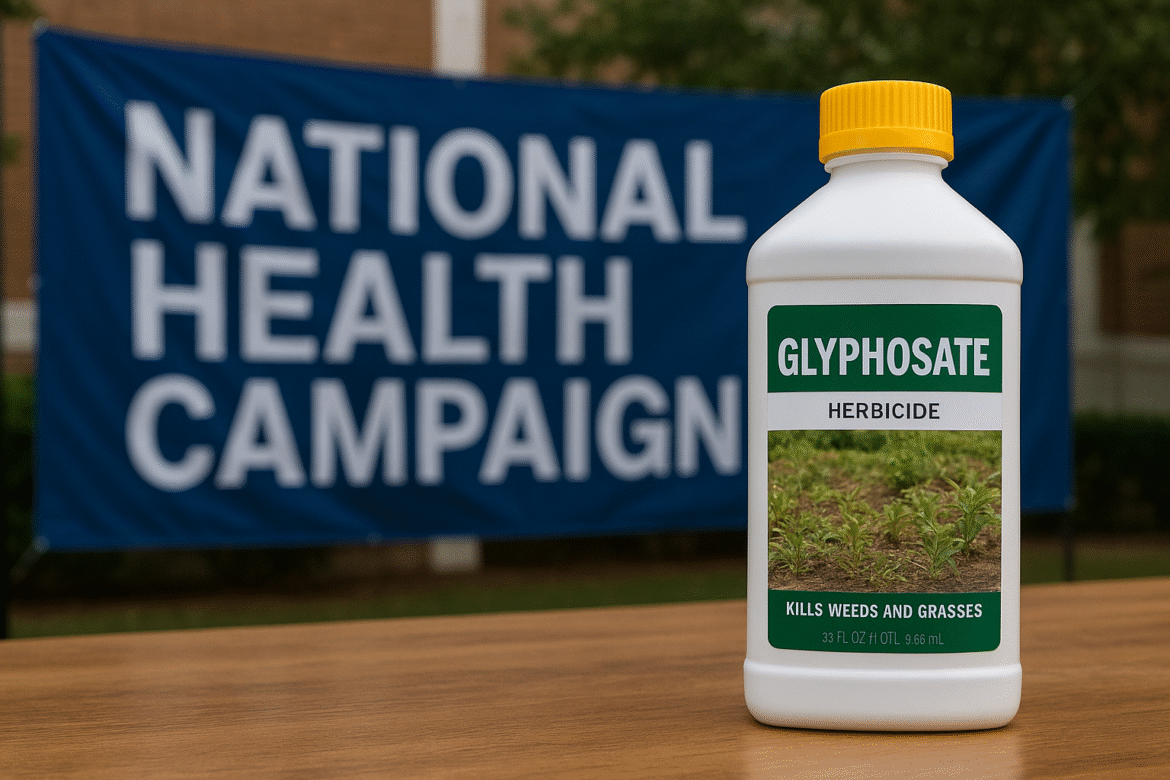Health and Human Services Secretary Robert F. Kennedy Jr. is escalating his efforts to combat environmental toxins by launching a national campaign against glyphosate, the controversial chemical found in the widely-used herbicide Roundup. This initiative marks a significant step in Kennedy’s broader public health agenda, which has included earlier efforts to limit the use of artificial food dyes and eliminate harmful additives linked to chronic disease.
Glyphosate, a chemical developed by Monsanto and now produced by Bayer AG, is one of the most widely used herbicides in the world. It is commonly sprayed on crops such as corn, soy, and wheat to control weeds. However, concerns over its safety have grown in recent years, with some scientific studies and advocacy groups suggesting that glyphosate exposure may be associated with health risks including cancer, endocrine disruption, and developmental problems.
“Too many of our chronic illnesses are linked to environmental exposures that we can and must reduce,” Kennedy said in a statement. “Glyphosate has become pervasive in our food supply and water systems, and it’s time we took serious action to protect public health.”
The campaign will focus on raising public awareness, funding independent research, and pushing for regulatory changes to reduce or eliminate the use of glyphosate in agriculture. Among the proposed policy measures are stricter residue limits in food products, clearer labeling on consumer goods, and incentives for farmers to adopt non-chemical weed control methods.
Kennedy’s stance on glyphosate has drawn both praise and criticism. Supporters, including environmental health groups and organic agriculture advocates, applaud the administration’s focus on reducing chemical exposures. They argue that glyphosate is overused and underregulated, and that long-term exposure, even at low levels, can have serious health effects.
“There’s growing evidence linking glyphosate to various chronic diseases,” said Dr. Karen Liu, a toxicologist with the Environmental Working Group. “Reducing its use is a necessary step toward creating a healthier food system and protecting vulnerable populations, especially children.”
However, critics—including some agricultural groups and industry representatives—warn that restricting glyphosate could have unintended consequences for crop yields and food prices. They argue that glyphosate remains a critical tool for modern agriculture and that current regulations already ensure its safe use when applied properly.
The U.S. Environmental Protection Agency (EPA) currently classifies glyphosate as unlikely to be carcinogenic to humans when used according to label instructions, a position that has been contested by international bodies such as the World Health Organization’s International Agency for Research on Cancer, which in 2015 labeled glyphosate a “probable human carcinogen.”
Kennedy’s campaign is part of a broader push within the Biden administration to address environmental health issues more aggressively. Recent efforts have included new restrictions on PFAS (so-called “forever chemicals”) and a national initiative to reduce air pollution in high-risk communities. Kennedy, long known for his environmental activism, has brought a heightened sense of urgency to the Department of Health and Human Services, blending public health policy with environmental advocacy.
As the campaign unfolds, federal agencies are expected to collaborate on new research initiatives and community outreach programs to educate the public about glyphosate and potential alternatives. Meanwhile, advocacy groups are pushing for more robust transparency around chemical use in agriculture and food production.
The outcome of this campaign could significantly reshape the regulatory landscape for pesticides in the U.S., influencing everything from farming practices to food labeling laws. For now, Kennedy’s move marks another bold step in an evolving debate over the intersection of environmental toxins and public health.
For more information, visit: Axios.

